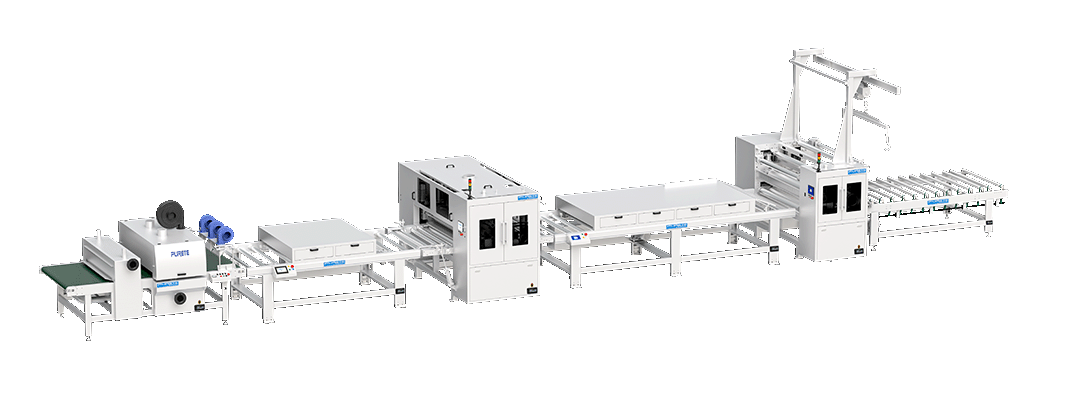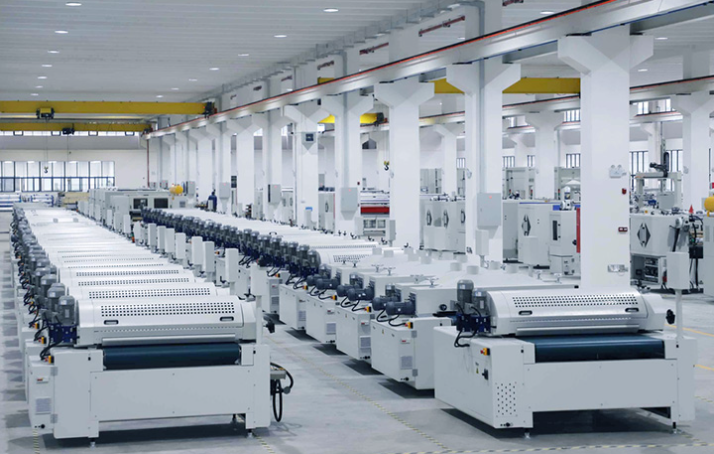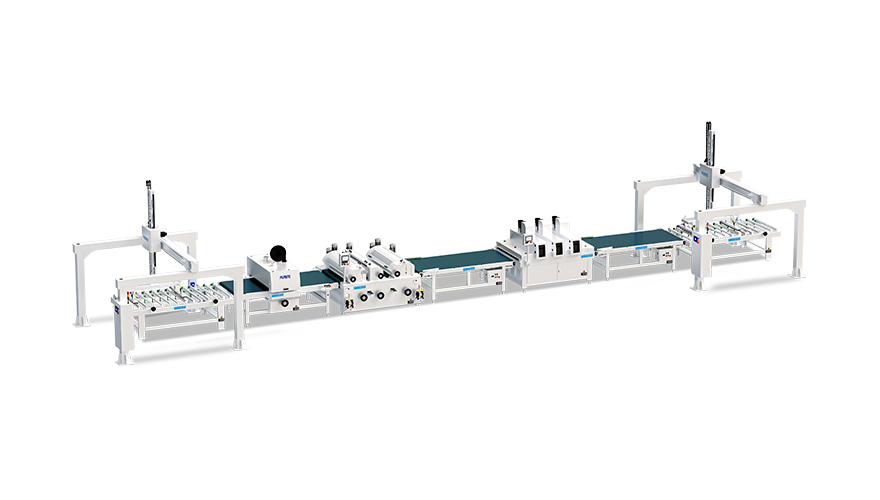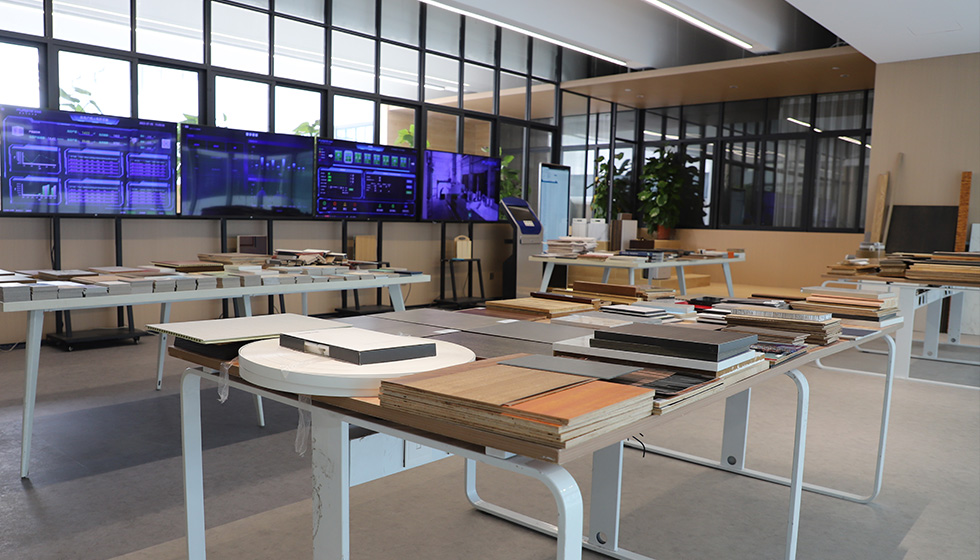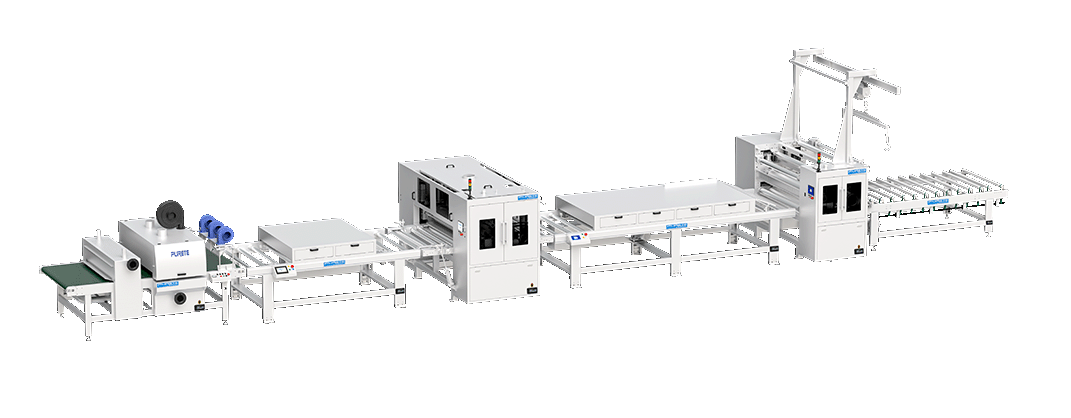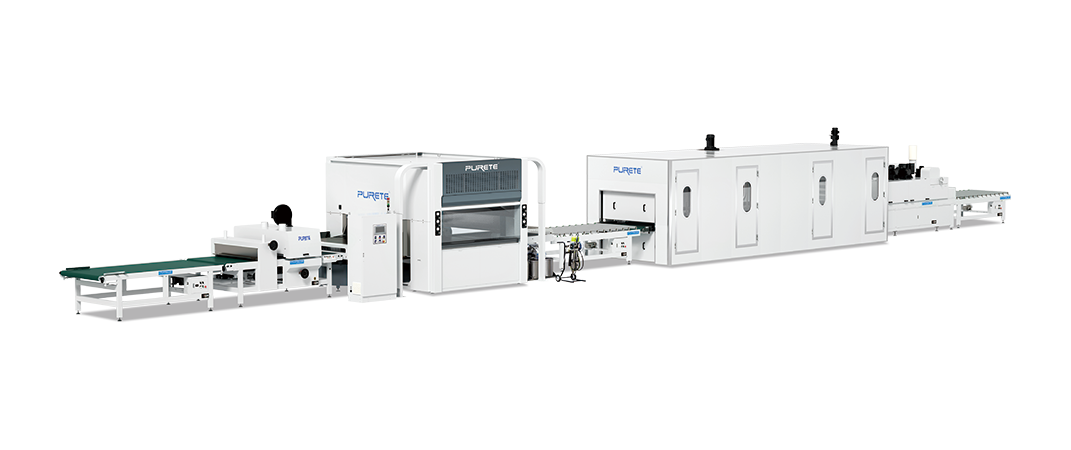Applications of Spray Painting Machines in Various Industries
 March 27, 2025
March 27, 2025 Hits:51second
Hits:51secondSpray painting machines have revolutionized the painting and coating process in multiple industries, providing high efficiency, uniform coverage, reduced material waste, and superior finishing quality. These machines use advanced spraying technology to apply liquid coatings, including paints, primers, varnishes, and protective coatings, onto different surfaces.
1. Understanding Spray Painting Machines
A spray painting machine is an automated or semi-automated system that utilizes compressed air, high-pressure pumps, or electrostatic forces to atomize and apply paint or coatings to surfaces. The primary types of spray painting machines include:
· Airless Spray Painting Machines: Use high-pressure pumps to deliver a fine, even coating.
· Electrostatic Spray Painting Machines: Utilize electrically charged particles to enhance paint adhesion.
· HVLP (High Volume Low Pressure) Spray Guns: Provide precise control and minimal overspray, commonly used in automotive and woodworking industries.
· Automated Robotic Spray Systems: Used in high-production settings for consistent and efficient coating applications.
These machines are widely adopted in industries where speed, efficiency, and coating quality are critical.
2. Applications of Spray Painting Machines in Different Industries
2.1 Automotive Industry
The automotive industry extensively uses spray painting machines for car body painting, component coating, and protective layering. The demand for high-quality, durable, and aesthetic coatings has made spray painting essential in this sector.
· Basecoat and Clearcoat Application: Ensures aesthetic appeal, corrosion resistance, and UV protection.
· Electrostatic Spray Painting: Improves paint adhesion and reduces material waste.
· Automated Spray Systems: Increase production efficiency and precision, ensuring consistent color and thickness.
With advancements in robotic automation, modern car manufacturing plants integrate spray painting robots that operate with AI and machine vision for precise, high-quality coatings.
2.2 Construction and Architecture
Spray painting machines play a vital role in construction and architectural projects, offering fast application, superior finishing, and long-lasting protection for buildings and structures.
· Interior and Exterior Wall Painting: Enhances aesthetic appeal and protects surfaces from weather damage.
· Steel Structure Coating: Provides anti-corrosion protection for bridges, skyscrapers, and industrial buildings.
· Fire-Resistant Coatings: Spray-applied fireproofing materials (SAFMs) improve the safety and durability of buildings.
High-rise buildings and large infrastructure projects rely on spray painting machines to efficiently cover extensive surface areas, reducing labor costs and time.
2.3 Woodworking and Furniture Manufacturing
In the woodworking and furniture industry, spray painting machines enhance the appearance and durability of wooden products, ensuring smooth, high-quality finishes.
· Lacquer and Varnish Application: Protects wood from moisture, scratches, and UV damage.
· High-Precision HVLP Sprayers: Ensure fine coatings for intricate wooden designs and carvings.
· Automated Spray Booths: Improve efficiency in mass furniture production while maintaining consistent quality.
Furniture manufacturers prefer automated spray painting for its ability to apply even coatings without brush marks or inconsistencies, enhancing the market value of their products.
2.4 Aerospace and Aviation Industry
Aircraft surfaces require specialized coatings to withstand extreme weather, pressure changes, and aerodynamic forces. Spray painting machines are crucial in applying protective and functional coatings to aircraft components.
· Anti-Corrosion Coatings: Prevent oxidation and wear on aircraft fuselages and wings.
· Heat-Resistant and UV-Protective Coatings: Enhance longevity and thermal protection.
· Military and Commercial Aircraft Painting: Uses robotic spray systems to apply high-quality camouflage and branding designs.
The precision and uniformity provided by spray painting machines ensure that aviation coatings meet strict industry regulations.
2.5 Metal Fabrication and Industrial Equipment
The metalworking industry relies on spray painting machines to provide protective coatings that enhance durability, wear resistance, and rust protection.
· Powder Coating and Liquid Spray Coatings: Improve the longevity of industrial machines, tools, and metal parts.
· Electrostatic Coating in Heavy Machinery: Ensures even coverage while minimizing material waste.
· Corrosion Protection for Pipelines and Machinery: Spray painting machines apply weather-resistant coatings for use in harsh environments.
Manufacturers in industries such as oil & gas, mining, and manufacturing depend on efficient spray painting techniques to ensure the longevity of their equipment.
2.6 Electronics and Home Appliance Industry
Spray painting machines play a vital role in enhancing the appearance and protection of electronic devices and appliances.
· Scratch-Resistant Coatings: Applied on smartphones, laptops, and home appliances to improve durability.
· Electrostatic Spraying for Plastic Components: Ensures even color distribution and minimal overspray.
· High-Gloss and Matte Finishes: Used in modern kitchen appliances, televisions, and smart gadgets.
The precise application of coatings using spray machines enhances the appearance and tactile feel of electronic products, making them more appealing to consumers.
2.7 Marine and Shipbuilding Industry
Spray painting machines are essential in the marine sector for applying coatings that protect ships, boats, and offshore structures from the harsh effects of saltwater, moisture, and UV radiation.
· Anti-Fouling Paints: Prevents barnacle growth and marine organism attachment.
· Corrosion-Resistant Coatings: Protects ship hulls and offshore rigs from rust and chemical damage.
· Protective Layering on Yachts and Cargo Ships: Enhances aesthetics and durability.
Given the large surface areas of marine vessels, high-capacity spray painting systems help speed up the painting process while ensuring a uniform coating.
3. Advantages of Using Spray Painting Machines
Across industries, spray painting machines offer several key benefits:
High Efficiency: Covers large surfaces quickly, reducing labor costs and production time.
Uniform and Smooth Coatings: Eliminates brush strokes and inconsistencies.
Reduced Material Waste: Electrostatic and HVLP technologies ensure minimal overspray.
Enhanced Durability and Protection: Provides weather-resistant, corrosion-resistant, and scratch-proof finishes.
Automation and Precision: Robotic spray systems enhance accuracy and consistency in large-scale production.
Spray painting machines have become an indispensable tool in modern industries, ensuring superior coating quality, efficiency, and durability. From automotive and aerospace to construction and electronics, these machines have transformed the way coatings are applied, leading to better product performance and longer lifespan.
As technology continues to evolve, AI-driven, automated spray painting systems will further improve efficiency and sustainability, reducing waste and enhancing precision. Companies looking to streamline production and improve product quality should invest in advanced spray painting technologies to maintain a competitive edge in their industry.
